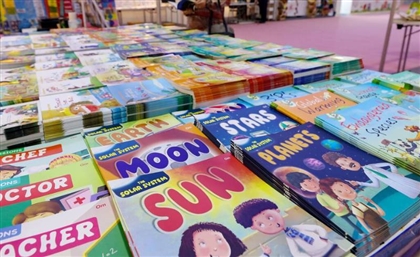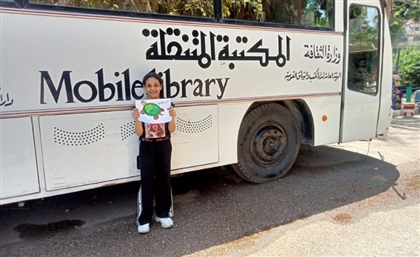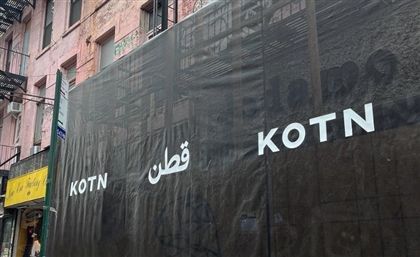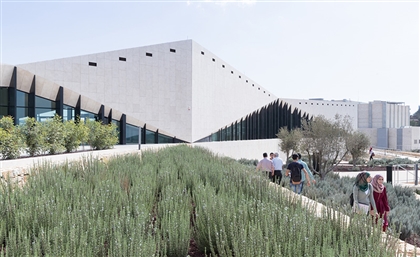Rowayat: a Literary Journey
Rowayat, an Egyptian literary journal that focuses on English fiction, hosted an event last week to introduce the concept to book buffs. Anam Sufi attends the event and has the pleasure of interviewing two established writers to find out more...
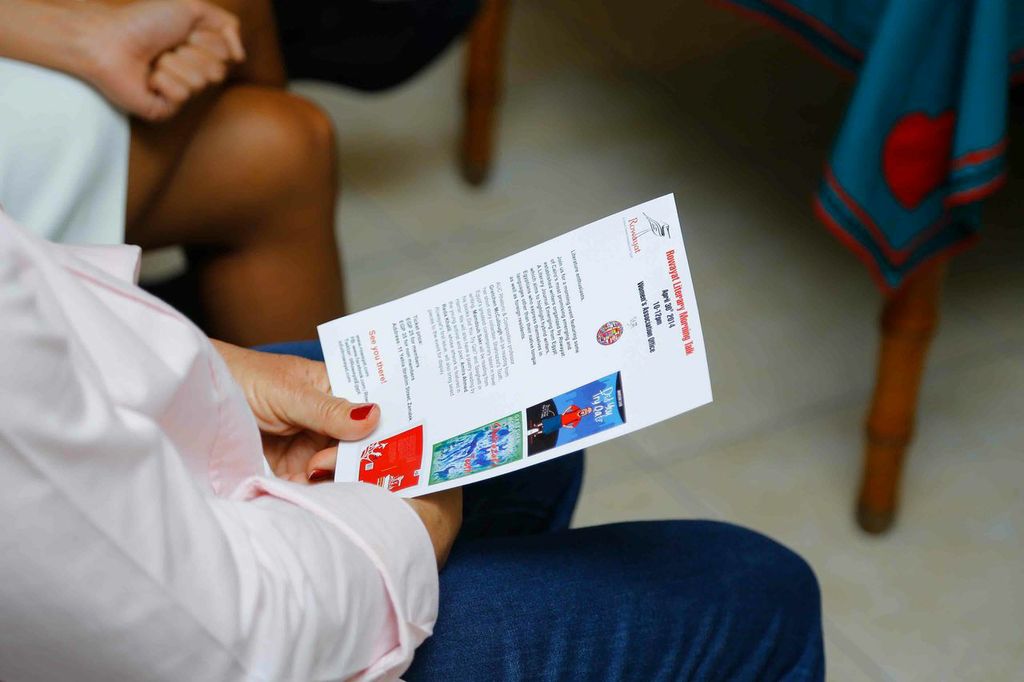
The revolution has seen a spike in artistic institutions and a burgeoning of talent stepping to the fore. That is not to say that such talent didn’t exist prior to the political changes that swept the nation, but there has certainly been an increased number of platforms to enable the recognition and publishing of such talent. One such outlet is framed in the literary arena, and tackles the pressing need gap for writers aspiring to publish and showcase work in English.
Rowayat is an emerging literary journal in Egypt that was founded by Sherine ElBanhawy. A blogger, freelance writer, and writer of book reviews, she launched the bi-annual journal this year with an attempt to offer emerging and established writers alike, the chance to have their creativity displayed in a formal manner.
The journal has an office in Egypt and in England, and focuses on promoting fiction writing. It operates online and in paperback. Described on its website, the journal serves as a “vehicle that catapults the writers of this generation to center stage, allowing them to freely express themselves. Rowayat is a constant reminder that we have a voice, a voice worthy of being heard. Rowayat not only welcomes Egyptian writers and foreign residents, but also Egyptians living abroad. This journal will feature and highlight original works of fiction, enabling future Egyptian writers to read, reminisce, comprehend and get a glimpse of what it is like to live and write in Egypt today.”

With the first edition of the journal already available in stores and by order, April 30th marked a highly enjoyable literary event that was held at the Women’s Association Office in Zamalek. Featuring some of Cairo’s most promising emerging and established writers, both of hybrid and authentic Egyptian identities, it included short readings from writers, Gretchen McCullough and Mamdouh Sakr, from their respective works.
I had the pleasure of attending the event, and being able to have a chat with both writers. From writing habits and literary advice, to understanding the fuel and formation of success in the field, my interview proved highly informative for anyone interested in pursuing a literary trajectory.
The writers:
Gretchen McCullough is an American writer and professor who has taught at various institutions in Egypt, Turkey, and Japan. Her stories and essays have been featured in The Texas Review, The Alaska Quarterly Review, The Barcelona Review, Archipelagio, National Public Radio, Storysouth, Storyglossia, and Guernica. Her bilingual book of short stories in English and Arabic, Three Stories from Cairo, was published in July 2011, by AFAQ Publishing House, Cairo.
Currently, she is a Senior Instructor in the Department of Rhetoric and Composition at the American University in Cairo. Her latest work is a new collection of short stories titled, Sharhrazad’s Tooth.
Mamdouh Sakr is a prime example of the creativity that surfaces when two fields are in communication. An architect and writer, he did his MA in Islamic Art and Architecture, and is currently completing his PhD. Spaghetti in Harrar is his second travel book to follow Did You Try Qat?
***
Do you write fulltime or part time?
Gretchen: Well, I’m a teacher so I write on my vacations.
Mamdouh: Part time, but also whenever I get the opportunity. Whenever there is time, I just write. I’m an architect, so whether it involves traveling or family vacations, I just feel the need to write when I feel like it.
Do you have a specific genre that you prefer to write in?
Gretchen: I have done a lot of travel writing. For example, when I lived in Syria I had a lot of experiences that inspired me. But right now I am mostly focused on writing fiction. Sometimes I write essays and do translations from Arabic to English; so collectively it’s a variety of things.
Mamdouh: I did my MA and then wrote architectural articles. And then I decided I wanted to write a novel. But it proved to be very difficult, because it seemed undoable, irresolvable. So because of the difficulties, I asked myself why don’t I just write something with a known start and a known end? So I started to write about my travels and then thank God it ended up being successful. But until now, I am trying to complete that novel.

So going off of what you just said, where do get your ideas come from? Is there one specific place or muse?
Gretchen: I get my ideas from daily life. Maybe somebody says or does something that attracts observation. I mean, one of the stories from here (Shahrazad’s Tooth), I got the idea from watching this Egyptian woman who was looking at somebody do something. So I decided to tell the story from her point of view. Basically, anything and everything can turn into an idea really, that’s why you have to be really alert in order to be a writer.
Mamdouh: Well as I said, for the novel I have all the characters in here (points to head). I mean, they cause me insomnia, hair loss, excessive eating, and its because I have to claim all the characters. They are always talking and screaming and it’s a torture really. Apart from the novel though, the travel writing comes easy. It’s just like telling a story that happened. It’s something that I know the context of. But going back to the novel, who knows, maybe I will get over my writer’s block after I publish the first one?
How do you pace yourselves in terms of writing?
Gretchen: I started this project in 2006, and I started the series of Egyptian stories, and then some of them I would put in the drawer and leave them there. Then I would take them out and revise them. Over time it grew into a book. Admittedly, it’s hard when I am teaching, so the more structural form of writing every day is something I leave for my vacations. But when you have a lot of other obligations that you have to fulfill, you end up getting distracted. For a novel, you need huge blocks of time for the writing process. You need the morning, and you need every day.
Mamdouh: Sometimes when you have an idea or a story or something, the idea keeps hitting you and it forces you to get it down on paper. Because of being an architect I usually don’t have the privilege of huge chunks of free time. But I usually write from a concept and then try to expand the idea into something with structural substance.

What’s the hardest thing about writing?
Gretchen: I don’t know, I changed my ideas about writing. I used to have a novel that I wanted to publish, but then decided against the idea. I don’t want to work with it anymore. But when I wrote that book I had everything plotted out. And now I’m thinking about writing in a different kind of way, its like play. I mean especially in the initial stages, you’re creating a world. But then the process of revision completely deconstructs things sometimes. So I’d say the revision process is the hardest; knowing when is enough.
Mamdouh: I completely agree. If I finish something, sometimes I don’t like it. I feel ashamed. I mean even with things that I have published, like with my two books, I still look back and find places where I feel I could have worded things differently, or in a better manner. You’re never going to be completely content, so you need to figure out when to stop.
Who do you turn to for editing and feedback, apart from professional editors from the publishing houses?
Gretchen: My friend, the one who did all the pictures in this book is an actor. He also reads my book and gives me feedback.
Mamdouh: My whole writing process started after I took a creative writing course. A lot of people tried to dissuade me from writing, telling me that I was not going to offer anything new or worthy of publishing. But the creative writing course I took with Linda Cleary really encouraged me. She pushed me to pursue my ideas, whether it was the novel or the short stories.
What’s the easiest part of writing?
Gretchen: It’s easy? Is it easy?
Mamdouh: Well, it’s enjoyable…
Gretchen: Yes, I agree. Anything that has the element of being enjoyable makes the process easier. Even today, to have people laugh when I read aloud from my work was wonderful; that’s the nice thing about having an audience.

Who are your favourite / most influential writers?
Gretchen: I’m reading a lot of things in Arabic right now. Yusuf Idris, or anything with magical realism appeals to me; you know, writers like Marquez. Now I like to read things that step away from the real.
Mamdouh: It's the same for me as well, but all my life I have been weary of answering the question as to who my favourite writer is. I mean having such a relationship tends to limit the expansive nature of what literature has to offer.
Lastly, do you have any advice for emerging writers?
Gretchen: I don’t think anyone should be motivated by money. I think you have to do it because you enjoy it and because it is satisfying. It’s much harder work than anybody realised.
Mamdouh: Keep writing. It’s like training, you have to keep writing to motivate and polish yourself. Such persistence is what keeps you going.
***
Ultimately, the initiative launched through Rowayat seems to be a pioneering stage for writers of varying ages and nationalities to express themselves in English. With support from established writers, alongside erudites in the literary arena, we hope it will continue to blossom into a treasure trove of possibilities for what are undoubtedly some of the most creative minds in Egypt today.
If you are interested in reading some of Gretchen McCullough’s work, please visit: http://www.gretchenmccullough.com
If interested in exploring the style of Mamdouh Sakr’s writing, please visit: http://www.facebook.com/DidYouTryQat
Rowayat’s online journal can be accessed at: http://wwww.rowayat.com
- Previous Article Copa Kia: Win a Trip to Brazil
- Next Article What Does that Even Mean?
Trending This Week
-
Apr 23, 2024
-
Apr 18, 2024




